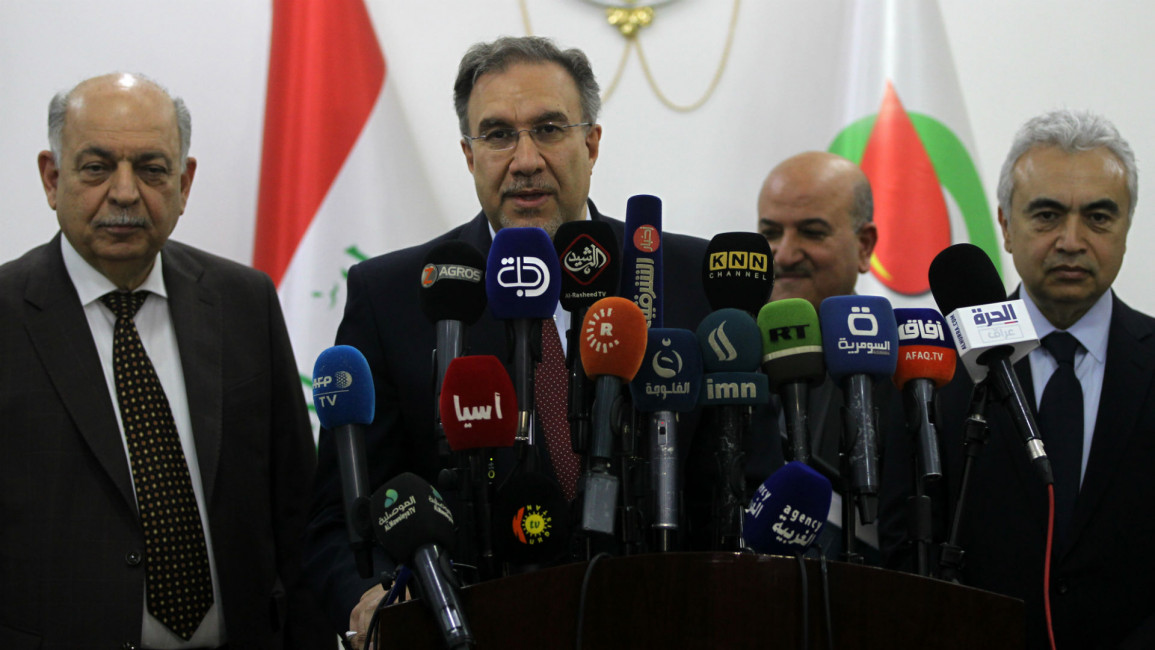Iraq signs deal to plug into Gulf power grid for the first time
The 300-kilometre (200-mile) transmission line would run from Kuwait to Iraq's southern port of Faw and be financed by the GCC, according to the electricity ministry.
It is the second deal the ministry signed in as many days to boost electricity supply in Iraq, where generation falls about 9 gigawatts below estimated demand of some 24 GW.
Electricity Minister Luay al-Khatteeb signed the agreement with the GCC Interconnection Authority (GCC IA) head Ahmad Ibrahim on the sidelines of an energy conference in Baghdad.
"This is the first deal of its kind with the GCC," Khatteeb told journalists, adding that Iraq was also in separate talks with neighbours Saudi Arabia, Jordan and Turkey to import electricity.
The line from the GCC could be developed further to contribute as much as 2 GW to the grid, he said.
The GCC IA said building the line would cost some $220 million, and a separate agreement would need to be signed on the actual imports.
"This is the first type of linkage outside of the GCC. This is part of our vision," Ibrahim told AFP.
"This first step will pave the way to discuss further and higher capacity projects, not only to supply Baghdad and northern Iraq but also as a pathway to other countries," he said.
Ibrahim said the project had "more than a technical or economic aspect. It has a political aspect."
Baghdad is looking to boost diplomatic ties with Arab neighbours, including Saudi Arabia and Kuwait, but insists it also wants to maintain good relationships with its other powerful neighbour, Iran.
The deal comes a day after Iraq signed a $1.3 billion agreement with German industrial conglomerate Siemens to add 1.7 GW to the grid by repairing war-damaged power plants in the northern city of Baiji.
Iraq partly fills its power shortages by importing both electricity and natural gas from Iran.
It has been granted a series of waivers from Washington to keep importing electricity from Iran despite US sanctions on Tehran, with the latest exemption expiring in mid-October.
Not involved
Iraq's new ventures come amid rising tensions in the Gulf after a drone strike attack targeted two Saudi Aramco oil facilities.
Baghdad on Sunday denied any involvement in the attack after comments made by US secretary of state suggested Yemen’s rebels were not to blame.
"Iraq denies what some media have reported on the use of its territory to attack Saudi oil installations by drones, and confirms its constitutional commitment to prohibit the use of its territory for aggression on its neighbours, brothers and friends," an official government statement said.
The government formed a committee to follow up on developments, the statement added, calling on all factions to halt attacks that cause grave harm and loss of life.
“The Iraqi government affirms solidarity with its brothers and expresses its concern that escalation and military solutions complicate the humanitarian and political situation and threatens our common security, as well as regional and international security,” the statement read.
“Iraq renews its call for a peaceful solution in Yemen, the protection of lives of civilians and the preservation of the security of the brotherly countries. It calls on the countries of the world, especially the countries of the region, to shoulder their humanitarian and moral responsibility and to undertake initiatives that put an end to this war, which is not profitable, and results in great human casualties and destruction of infrastructure,” it added.
The comments came after US Secretary of State Mike Pompeo blamed Tehran for the pre-dawn attack, which was claimed by Yemen’s rebel Houthi movement.
Pompeo said that there was no evidence that the attacks, which targeted the key Aramco facilities of Abqaiq and Khurais in eastern Saudi Arabia, were launched from Yemen.
"Iran has now launched an unprecedented attack on the world's energy supply," Pompeo tweeted.
"The United States will work with our partners and allies to ensure that energy markets remain well supplied and Iran is held accountable for its aggression," the top US diplomat added.
The drones triggered multiple explosions, forcing the state-owned Saudi Aramco oil company to temporarily suspend production at the two facilities and interrupting about half of the company's total output, Saudi Energy Minister Prince Abdulaziz bin Salman said.
Follow us on Twitter: @The_NewArab



